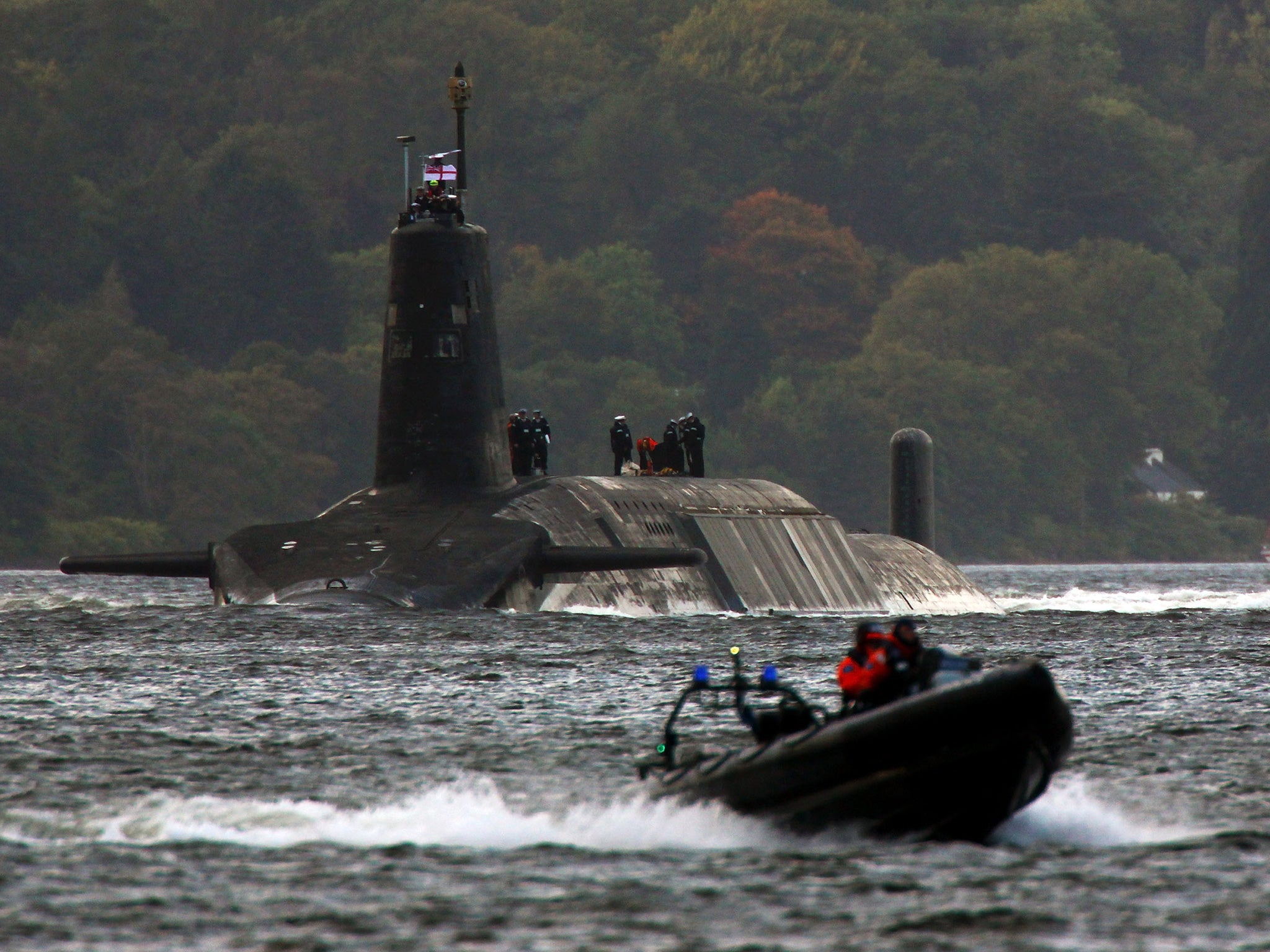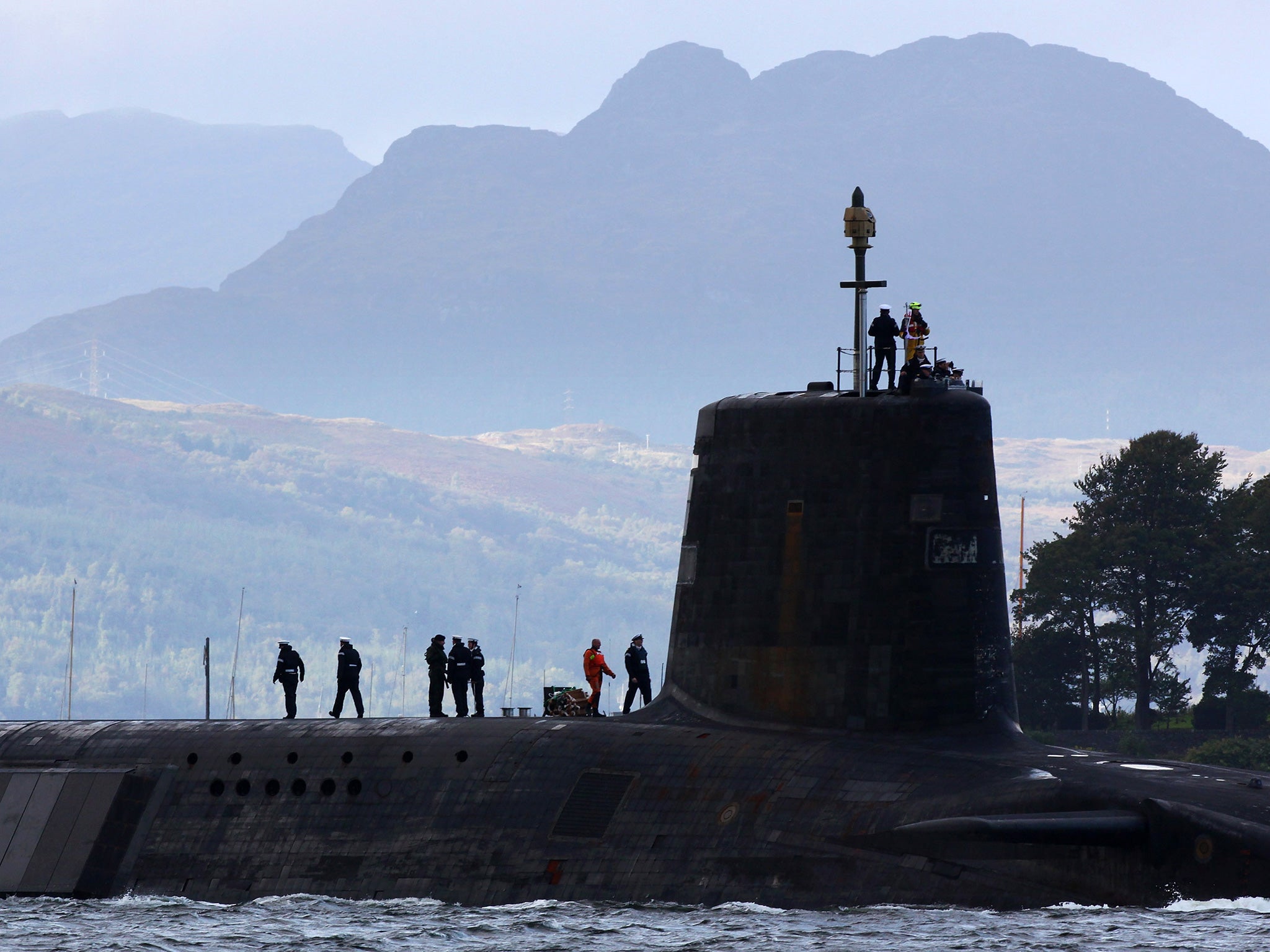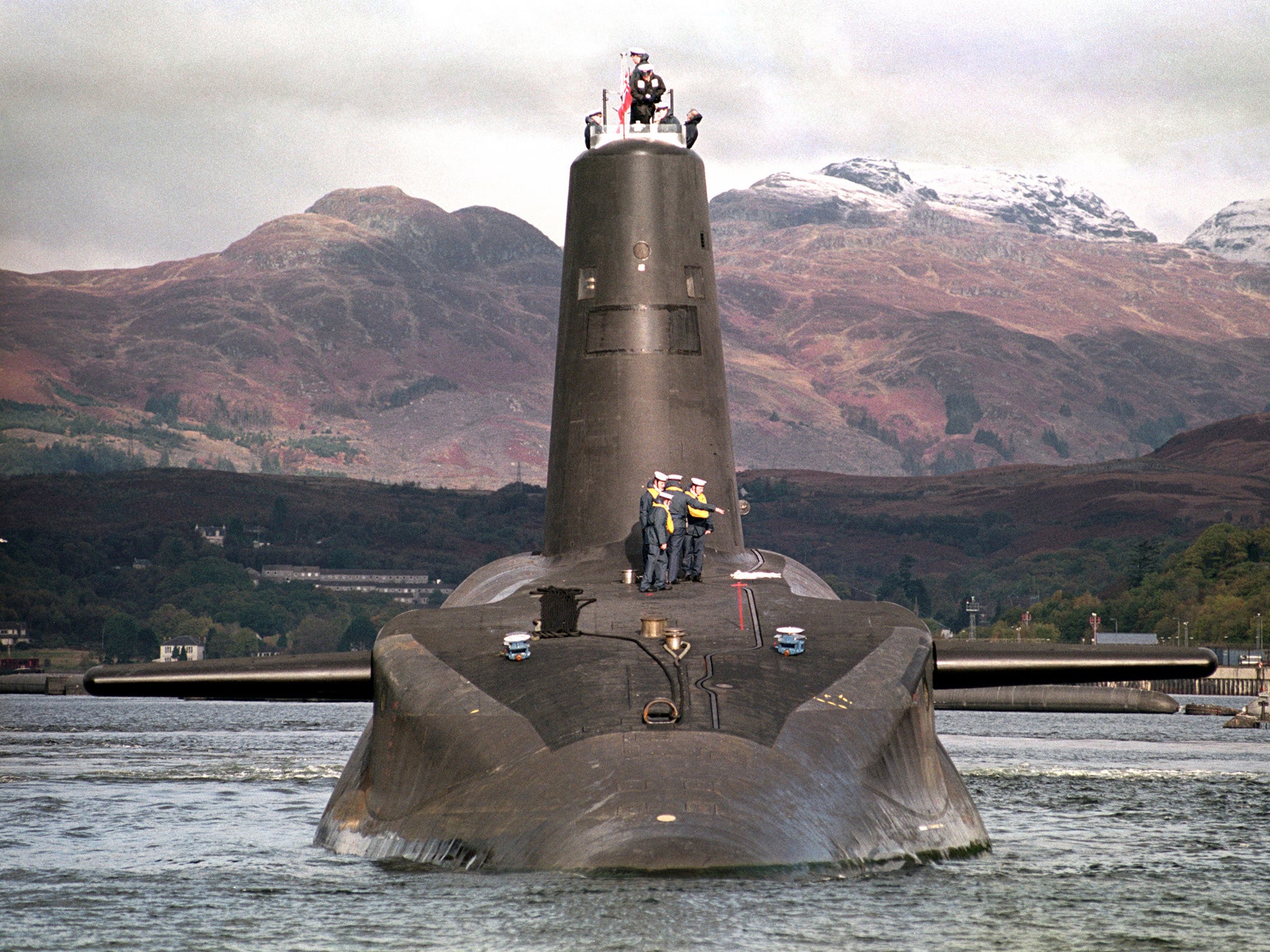Trident whistle-blower William McNeilly transferred to Portsmouth naval base as Royal Navy disputes his claims about the 'silent service'
Able Seaman McNeilly has been offered 'welfare and pastoral support'

Somewhere deep beneath the surface of the Atlantic, one of the Royal Navy’s four Vanguard-class nuclear submarines carrying more than a dozen Trident nuclear missiles is on patrol. Moving at a walking pace, one of these vast vessels is always at sea undetectable, untouchable and armed with enough explosive power to bring on Armageddon.
Secreted within the bowels of the 150m-long submarine, and contained inside a safe within a safe, is a terrifying letter. It contains instructions on what the captain should do with his deadly arsenal of nuclear missiles if a catastrophic attack wipes out the British government.
This week the safety and security of that nuclear deterrent was questioned in spectacular fashion when a junior rating on a Vanguard submarine based at Faslane in Scotland published a damming 18-page report which claimed that Britain’s nuclear deterrent was an “accident waiting to happen”. The document contained accusations ranging from of lax security and fire hazards to crew obsessions with niche pornography and poor-quality food.

Able Seaman William McNeilly, 25, handed himself in to Royal Navy Police at Edinburgh airport on Tuesday, but The Independent can now reveal that he has been transferred to naval base HMS Nelson in Portsmouth where he is confined to quarters and being offered “welfare and pastoral support”. Fellow sailors at HMS Nelson have posted images of the Able Seaman in the base canteen.
“To my knowledge, this kind of leak is pretty much unprecedented,” said former Royal Navy submarine commander Ryan Ramsey, 45, who poured doubt on Able Seaman McNeilly’s claims. “I suspect there will be disappointment from his shipmates that he joined a service that holds secrecy so close, but that he has broken that secrecy.”
Graham Edmonds, a spokesperson for the United Kingdom Defence Association and a retired Royal Navy commander, was equally disappointed. He said: “Whistle blowing might excite individual lobby groups but in this case it concerns the security of the nation’s independent strategic nuclear deterrent; it was an irresponsible act and it seems clear that it was his motivation for joining the RN”.
Some defence experts have admitted there could be elements of truth in some of his lesser claims, but the Royal Navy has firmly dismissed allegations that while on patrol in HMS Victorious this year, he was told that alarms on the Trident nuclear submarine’s missile control and monitoring station had been muted so crew members didn’t have to listen to them. He also claimed that crew members had told him about floods on the submarine and a fire while in port that would have left 50 sailors dead if it had happened at sea, a claim the Royal Navy disputes.
The Ministry of Defence has historically downplayed incidents involving its secretive fleet of nuclear submarines, leading to critics to suggest Able Seaman McNeilly’s claims should be taken seriously. The SNP has secured a debate in Parliament over the issues pointing to an incident in 2012 when a Trident submarine was forced to limp back to port after its rudder broke as a cause for concern. Others point to an incident in 2009 when HMS Vanguard collided with a French nuclear submarine in a remarkable accident in the vastness of the Atlantic Ocean.

Independently confirming Able Seaman McNeilly’s recent allegations is incredibly difficult as submariners consider themselves the “Silent Service within the Senior Service.” One naval source said: “You won’t get an answer by speaking to any officer or crew or retired crew who served on a Vanguard. Submariners the world over are a close knit community.” For its part the official Royal Navy’s official line is that it “continues to disagree with McNeilly’s subjective and unsubstantiated personal views, but we take the operation of our submarines and the safety of our personnel extremely seriously and so continue to fully investigate the circumstances of this issue”.
According to Ramsey though, who commanded attack submarine HMS Turbulent during the Libyan intervention, the “technical complexity of running a nuclear submarine is vast” and it is possible that in this case “a very junior rating may just have misunderstood a lot of what he saw.”
He said: “Essentially you are taking the most complex machine in Britain’s inventory underwater into an environment that’s less explored than space. And this young sailor, who could quite possibly be overawed by the experience, just wouldn’t have had the experience or knowledge to understand, or even know about, the extremely rigorous safety and security precautions”.
Join our commenting forum
Join thought-provoking conversations, follow other Independent readers and see their replies
Comments